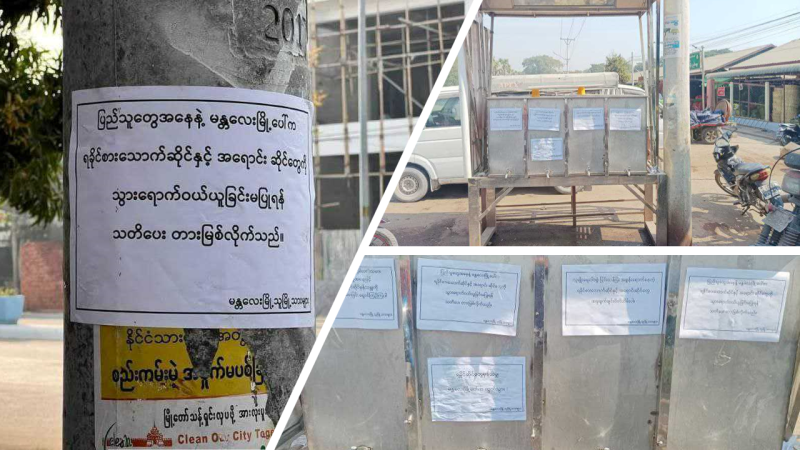Myanmar Military Accused of Inciting Ethnic Riots to Distract from Battlefield Defeats

Amidst ongoing conflicts in Myanmar, the Arakan Army (AA) has leveled serious accusations against the Myanmar military council, alleging efforts to incite ethnic riots as a diversion from recent military setbacks. U Khaing Thukha, spokesperson for the AA, provided detailed accounts of these accusations in a statement to CJ Platform, shedding light on the complex dynamics at play in the region.
Myanmar has been embroiled in decades-long conflicts involving various ethnic armed groups, with the Rakhine state often at the epicenter of these tensions. The AA, representing the Rakhine ethnic group, has been in armed conflict with the Myanmar military, seeking greater autonomy and rights for the Rakhine people.
“The violent fascist military council is trying to create ethnic riots to cover up their defeats on the battlefield,” Khaing Thukha stated, referring to a significant event where the AA claims to have sunk two warships and a tugboat near Apotwa Village, resulting in over 600 military casualties.
In what appears to be a reaction to these losses, Khaing Thukha alleges the military council has launched a disinformation campaign. This includes the distribution of anti-Arakanese leaflets and the spreading of false information aimed at fostering ethnic and religious tensions. “They are distributing these photos on the Military Council’s propaganda telegram channels, intending to incite Rakhine-Burmese riots,” he added, highlighting the gravity of the situation.
Sayar Moe Thway Nyo, a member of the Committee of the Basic Education Workrs Union, echoed Thukha’s concerns, pointing out the military’s historical pattern of exploiting ethnic divisions to maintain control. “When they are losing the war in North Shan and Rakhine, they will create ethnic riots as usual,” Nyo remarked. He emphasized the critical need for public education to counteract the military’s propaganda, underscoring the importance of exposing false information to prevent ethnic violence.
This campaign of misinformation has reportedly manifested in tangible actions within major cities such as Yangon and Mandalay. Leaflets urging boycotts of Rakhine-owned businesses have been distributed, leading to the forced closure of some shops.
A 45-year-old woman from Mandalay, reflecting on the situation, told CJ Platform, “The SAC wrote a letter, sticking along the market. It is not just that there is a war between Rakhine and Burmese. We are not divided by hatred.”
The current crisis is set against a backdrop of a nation fraught with longstanding ethnic and political conflicts.
The military’s February 2021 coup, which ousted the elected government led by Aung San Su Kyi, has only intensified these tensions, leading to widespread protests, international condemnation, and an escalation in armed conflicts across the country.
As Myanmar grapples with these multifaceted challenges, the international community and local activists continue to call for restraint and peaceful resolutions. The situation underscores the critical need for unity, accurate information, and a concerted effort to resist divisive tactics that threaten the country’s path to peace and reconciliation.

